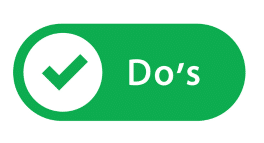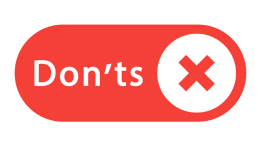Prior to the pandemic, the first round of interviews was generally a phone screen. They were impersonal, left virtually no opportunity to interpret social cues, and left people feeling worse than a pat down by the TSA. Except the TSA lets you know right away whether or not you can move on to your gate.
Enter the era of the virtual interview. Now we can see one another in this first step – it had to be a better option, right? The answer is yes and no. Here are some of the biggest challenges, dos, and don’ts to keep in mind.
Challenges:
- Technology Issues: try to get in front of these by testing and updating your equipment in advance of your interview
- Check your internet speed with enough time to reset your modem/router if you need to
- Reboot your computer with enough time to account for updates
- Make sure you have the technology/apps ready to go – test Teams or Zoom with a trusted friend to make sure you can easily connect
- Log in 5 minutes prior to your meeting, and if you do encounter a tech issue while trying to log in to the meeting, email/message/text the interviewer immediately to give them the heads up – you do not want to be late or get off on the wrong foot!
- Interruptions: Prepare for your virtual interview as you would if it were in-person
- Make sure your animals have been let out, fed, secured, etc. in advance of the conversation
- Make sure someone is watching your children (this would hold true on a phone screen as well)
- Make sure you are in a place with no distractions (doorbells, cellphone reminders, landline phones, timers, etc.)
- If you must take your interview on your cellphone, make sure you have good reception and a secure phone holder where your face is visible and in frame
- Reductions in non-verbal cues: Because only part of the body is visible, reading body language is compromised during a virtual interview
- You can make up for this by projecting the most professional image possible; present yourself exactly as you would face to face
- Speak a bit more slowly and with clearer diction than you might need to face to face
- Practice how you come across by answering common questions in the mirror and smile as much as possible
- Be on time and prepared:
- Make sure you are linked in with your interviewer prior to your conversation – it shows you genuinely cared to learn who they are and what their story is
- Show them respect by being on time and caring about prioritizing their efforts
- Research the company to understand the vision and where they are headed; don’t just look at the website and Glassdoor reviews – investigate investor relations and press releases to see how your experience may be able to contribute to some of these initiatives
- Show them you mean business:
- Dress your best: make up done, hair done, clothes you would wear for an in-person meeting
- Make sure you have an appropriate background: no mess, no chaos and if you have a background image/blur – make sure you don’t look like a floating head
- Take notes on points you want more information on or things they mention which you can tie to your successes
- Prepare thoughtful questions for them on the direction of the role, their pain points, goals for the department – don’t just pull questions off the internet that they’ve likely heard a hundred times before
- Admit if you are confused by a question or would like more time to provide a thoughtful response:
- It will never benefit you to answer a question you don’t understand or don’t know the answer to. Instead, ask for clarification on a confusing question. If you are not prepared to answer, let them know you would like to send a follow up response to that question in order to provide an accurate and thoughtful response to help their decision making
- Ask if there is anything they need clarification on, or whether they have any concerns you can help assuage
- Express your interest in the role and ask what next steps are
- Follow up with a thoughtful and tailored thank you note within 2 business days
- Ramble: Answer the questions directly and succinctly. I cannot stress how important this is! Do not offer up superfluous information that takes away from the answer they were driving for. If your answer takes longer than 1 minute, you have rambled. If anything, you can always stop yourself at the one-minute mark and ask them if they would like more details about anything you just said. If you really don’t understand what they are asking, repeat what they asked and ask for clarification on what they are looking for
- Make Excuses: Your story is what it is – be quick and clear about your reasons for leaving or anything you feel is unpleasant in your work history
- Badmouth Previous Employers or Peers: I promise that this will NEVER work in your favor. Most people will understand that there may be circumstances where the job was not as promised, the leadership was challenging, or any number of other things. Be clear that your intention is to be as respectful as possible to your previous employer without placing blame or revealing information which might compromise their reputation or your relationships
- Feel the need to fill the vacuum: Pauses in between thoughts or questions are a good thing. It means that you are both being thoughtful and intentional in where the conversation goes
While phone screens may have been replaced by virtual first interviews, they have also evolved into more in-depth discussions than phone screens used to entail. Therefore, being prepared is even more important to ensuring you move forward to the next steps. When in doubt, contact us at Elevation Talent Group to navigate any concerns you have or even to help boost your confidence.




